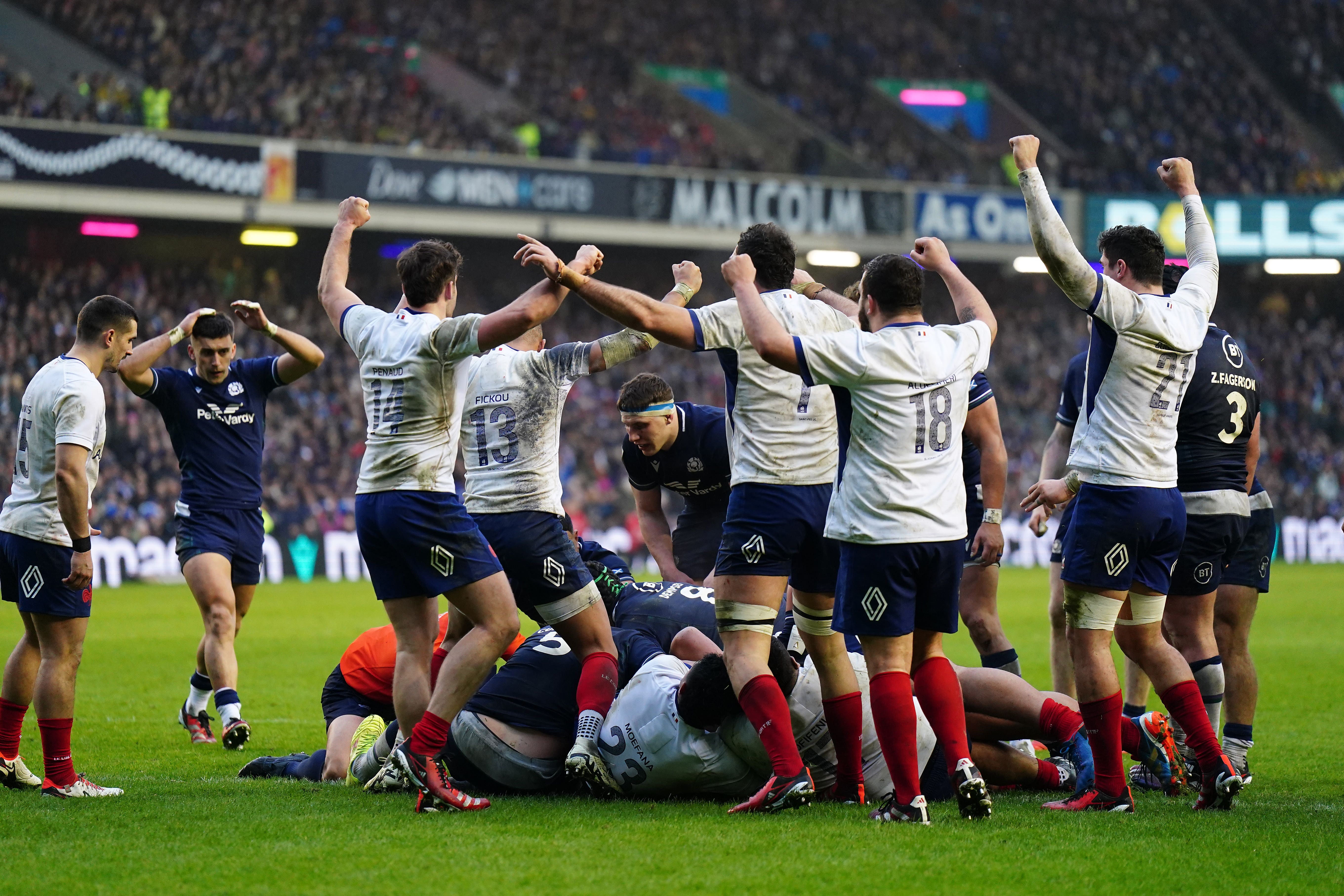5 things we learned from round two of the Guinness Six Nations
England and Ireland maintained their 100 per cent records.

Your support helps us to tell the story
From reproductive rights to climate change to Big Tech, The Independent is on the ground when the story is developing. Whether it's investigating the financials of Elon Musk's pro-Trump PAC or producing our latest documentary, 'The A Word', which shines a light on the American women fighting for reproductive rights, we know how important it is to parse out the facts from the messaging.
At such a critical moment in US history, we need reporters on the ground. Your donation allows us to keep sending journalists to speak to both sides of the story.
The Independent is trusted by Americans across the entire political spectrum. And unlike many other quality news outlets, we choose not to lock Americans out of our reporting and analysis with paywalls. We believe quality journalism should be available to everyone, paid for by those who can afford it.
Your support makes all the difference.France, England and Ireland were the winners in round two of the Guinness Six Nations, which failed to produce the excitement seen on the opening weekend.
Here the PA news agency looks at five things we learned from the weekend’s action.
Officials in the spotlight
World Rugby recently released an absorbing documentary titled ‘Whistleblowers’ in the hope it will change the conversation around officials by showing the difficulties they face, both personal and professional, in overseeing one of the most complex sports around. But as criticism descended on Nic Berry and James Doleman following controversial calls at Murrayfield and Twickenham respectively, it is clear the odds are stacked against referees because of the laws. The decision not to award Scotland a last-gap try against France and to allow Wales to run down George Ford’s conversion were legitimate according to the rules of the game, but both felt like the wrong call. Clarification shed light on why the right outcomes had been reached, but by that time the online vilification was already underway.
Hollie makes history
Rugby’s officialdom was at least able to celebrate one notable victory from round two and that was Hollie Davidson’s slice of history at Twickenham. The 31-year-old Scot became the first female member of an officiating team for a men’s Six Nations match as the glass ceiling for women in the sport continues to be broken. Now rugby’s pre-eminent female referee, Davidson has already overseen a men’s international having taken charge of a clash between Portugal and Italy in 2022. A Test between heavyweight nations must be the next goal for the Scottish Rugby Union’s first full-time official.
Golden era unable to shine
Even if rugby’s protocols dictate otherwise, Scotland’s stoppage-time try against France should have stood. Scottish dismay was understandable, but this controversial moment aside they can only look inwards when they begin the inquest into why they are not two from two having led for most of the match against opponents nursing a World Cup hangover. A poor spectacle was there for the taking but yet again a group of players regarded as one of the most talented ever to emerge from the country has fallen short. That first Six Nations title appears as elusive as ever.
Red Rose rolls on
England are one of two unbeaten sides left in the Six Nations and, while they deserve credit for equalling their victory total for the last three tournaments before the first fallow week, they know their underwhelming wins against Italy and Wales were too close for comfort. Far tougher tests await against Scotland, Ireland and France over the coming weeks and Steve Borthwick’s team must improve significantly if they are to remain in title contention deeper in the tournament. So far they have displayed resilience, a greater appetite to attack and defensive steel, but for now they remain a middling nation.
Ireland in the box seat
Only Ireland also remain in Grand Slam contention and, as they swatted aside Italy despite making six changes, it was hard to look beyond another clean sweep for Andy Farrell’s men. No side has managed back-to-back Grand Slams in the Six Nations era but such is the depth in Irish rugby and the fluency of their game that it would take a sizeable upset to prevent them writing their name in the history books. Italy, meanwhile, took a step backwards having troubled England in Rome.